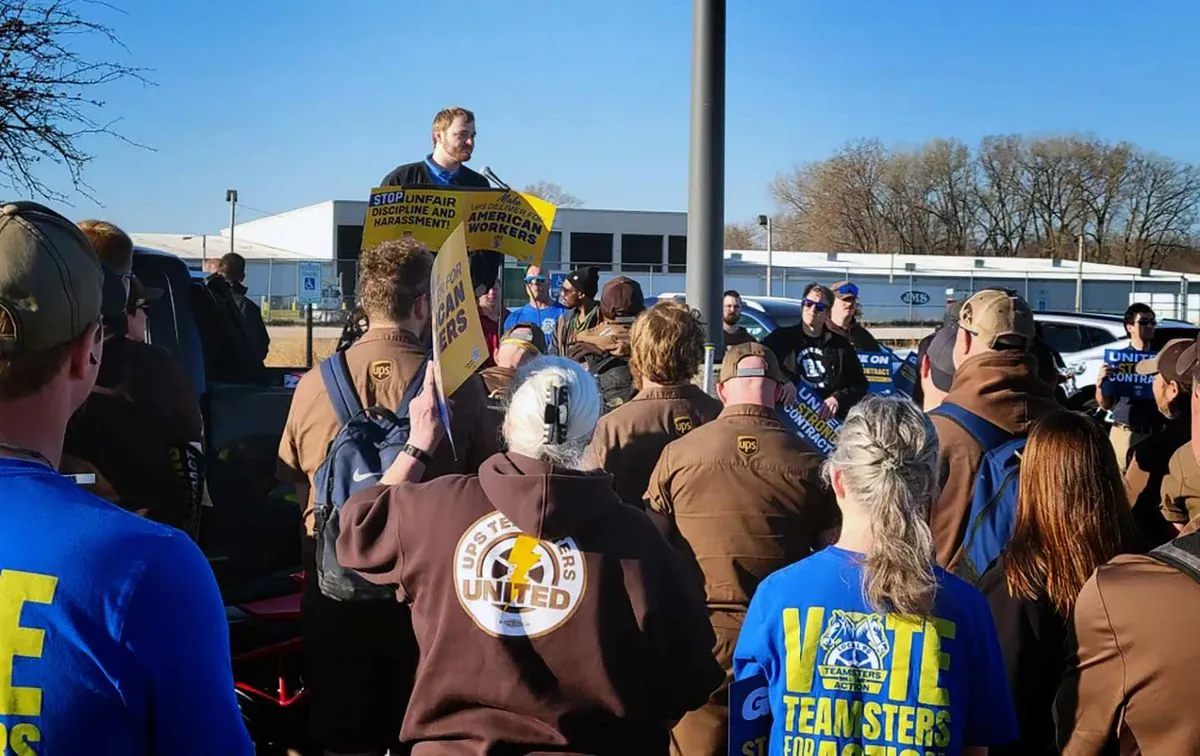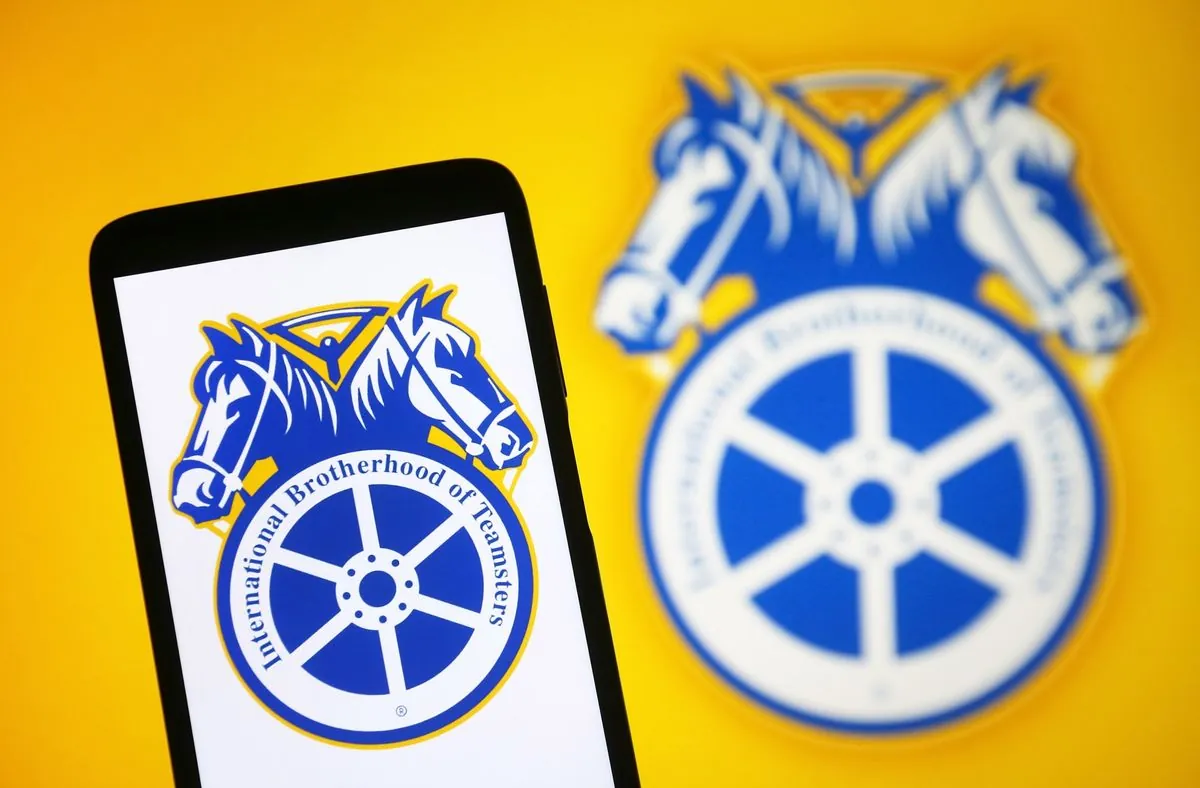Teamsters Break Tradition: No Presidential Endorsement Despite Trump Lead
The International Brotherhood of Teamsters has decided not to endorse any U.S. presidential candidate, breaking a long-standing tradition. This decision comes despite internal polling showing member preference for Trump over Harris.

The International Brotherhood of Teamsters, a prominent labor organization with 1.3 million members, has made the unprecedented decision to withhold endorsement for any U.S. presidential candidate in the upcoming November 5, 2024 election. This marks a significant departure from the union's long-standing tradition of political engagement.
An internal poll conducted by the Teamsters revealed a striking preference among its members. Donald Trump, the Republican candidate, garnered 59.6% support, while his Democratic opponent, Kamala Harris, received 34% backing. This outcome stands in contrast to the union's historical tendency to support Democratic candidates, which it had consistently done since 2000.
The Teamsters' decision not to endorse breaks a 28-year streak, with the last instance of non-endorsement occurring in 1996. Throughout its history, the union has occasionally supported Republican candidates, including Ronald Reagan in 1984 and George H.W. Bush in 1988.

Sean O'Brien, President of the Teamsters, explained the rationale behind this decision:
"Neither major candidate was able to make serious commitments to our union to ensure the interests of working people are always put before Big Business."
O'Brien further elaborated that the union sought assurances from both Trump and Harris regarding non-interference in critical union campaigns and respect for members' right to strike, but these commitments were not secured.
This move by the Teamsters diverges from the actions of other major labor organizations. The United Auto Workers and the AFL-CIO, representing 60 unions and 12.5 million workers, have already endorsed Harris. The Teamsters' decision could potentially impact the electoral landscape in crucial battleground states such as Michigan, Nevada, and Pennsylvania, where union membership is substantial.
The Harris campaign, through spokeswoman Lauren Hitt, emphasized that despite the national union's stance, some Teamsters locals have endorsed Harris. Meanwhile, the Trump campaign highlighted the poll data as evidence of strong support among rank-and-file workers.
It's worth noting that prior to Joe Biden's withdrawal from the presidential race on July 21, 2024, Teamsters polling showed a different picture, with Biden leading Trump 44.3% to 36.3%.
The Teamsters' decision reflects the complex relationship between labor unions and political candidates. Founded in 1903, the union has a rich history of advocating for workers' rights across various industries. From participating in major strikes to negotiating with corporations like Amazon and Walmart, the Teamsters have consistently fought for fair wages and improved working conditions.
As the election approaches, the impact of this non-endorsement on the political landscape remains to be seen. The Teamsters' decision underscores the evolving dynamics between labor organizations and political parties, highlighting the importance of addressing workers' concerns in the current political climate.


































